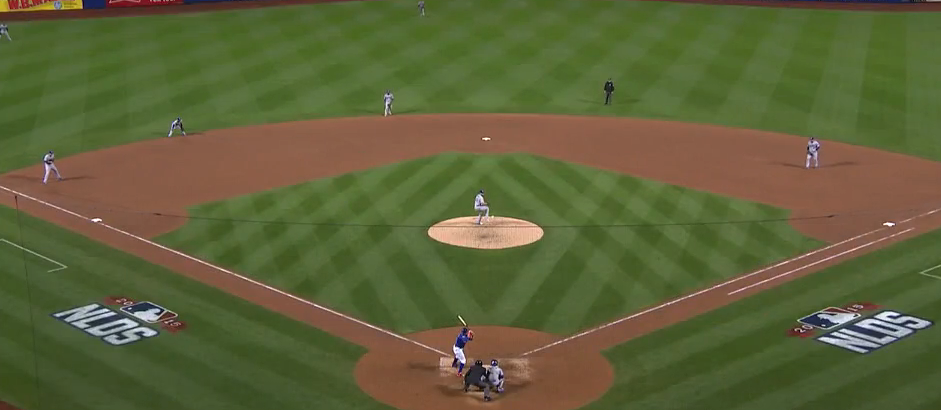
Screenshot: Gammons Daily
Clayton Kershaw, I think it’s safe to say, was a shifting cynic when aggressive defensive maneuvering took center stage a couple years back. Speaking with David Vassegh in this interview that ran Friday on AM 570, Kershaw conceded that he had come around to embrace defensive shifts (which always made sense) …
“Chris Woodward on the infield and coach George Lombard in the outfield, those guys do a great job with positioning, getting what they get from upstairs and relaying it down to us,” Kershaw said. “I’ve kind of bought in a little bit more than I have in the past. I was a little bit skeptical, but especially with the infield positioning, there’s so many ground balls that you can really get a good idea of where guys hit the ball on the ground, and you know Woody does a good job with that.
“And I saw that in the Cubs series, when I pitched in the playoffs, there’s a lot of lefties grounding out, even kind of like short lineouts to basically shallow right field where Logan (Forsythe) is playing second base, so it can definitely get you some outs in the long run.”
On a separate topic, Kershaw told Vassegh that he was an active part of the resistance to bringing pitch clocks to the major leagues.
“I was definitely involved,” Kershaw said. “I was on a few conference calls this offseason with 50-60 guys. We were all pretty invested.
“At the end of the day, we just don’t want to change the integrity of the game. We don’t want pitch clocks, or penalties with pitch clocks or anything like that to ruin the way the game is played. We’re all for a crisp game – the union, the players, everybody. We want to play a quick game as much as anybody does. It’s just a cleaner game when we’re all playing in a crisp fashion. So we’re on the same page as that. We just had a little bit of different ideas than the Commissioner’s Office about how to go about that.”
All that being said, currently in the MLB official rulebook is Rule 8.04, which says:
When the bases are unoccupied, the pitcher shall deliver the ball to the batter within 12 seconds after he receives the ball. Each time the pitcher delays the game by violating this rule, the umpire shall call “Ball.”
But in reality that’s not a thing. Kershaw himself averaged 23.4 seconds between pitches in 2017.




Comments are closed.